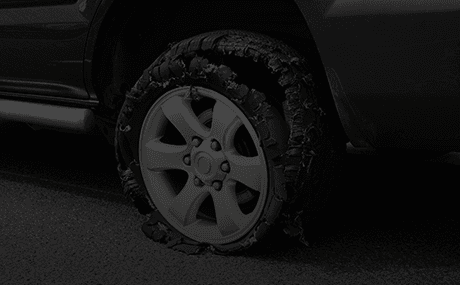Los Angeles Explosion Lawyer
Injured in an Explosion at Work or at Home?
An explosion can cause catastrophic injuries, including severe burns and disfigurement. Explosions can occur at chemical plants, oil refineries, laboratories, or any business or home where natural gas is piped or a boiler is used for heating. If you or a loved one has been injured in an explosion, you are urged to contact an explosion accident attorney in Los Angeles, like those at Shoop APLC.
Hurt in an explosion? Call (866) 884-1717 or contact us online to discuss your case with our Los Angeles explosion attorneys in a free consultation.
Common Types of Explosions
Some of the most common types of explosions include:
- Natural gas explosions: Natural gas heats most homes and fuels most stoves. It has to be channeled to each home through a path of underground pipes. If low-grade piping is used or if there is shoddy workmanship in the installation, an explosion may be the result.
- Oil explosions: Oil of course is quite flammable. At oil refineries, if refining units are overfilled with oil-based liquids, on heating an explosion may result. At any place where oil or gas is stored, a fire nearby may touch off an explosion.
- Chemical explosions: Science laboratories use all manner of explosive chemicals. Improper storage or use may set off an explosion.
- Boiler explosions: A defective or poorly maintained boiler may explode causing extensive property damage and injury.
Ways That Explosions Can Be Caused by Negligence
Improper Storage of Flammable Materials
One of the most common causes of explosions due to negligence is the improper storage of flammable materials. These materials, such as gasoline, propane, and other combustible liquids and gases, can easily ignite if they come into contact with a spark or flame. This is why it is important to store these materials in an area that is well-ventilated and away from any sources of ignition.
Poor Maintenance of Equipment
Another potential cause of explosions due to negligence is poor maintenance of equipment. For example, if a piece of machinery is not properly maintained or inspected regularly, it could malfunction and create sparks or flames that could ignite flammable materials in the area. Similarly, failing to inspect electrical wiring for frayed wires or loose connections can also lead to an explosion.
Ignoring Safety Protocols
Negligence can also occur when safety protocols are ignored or not followed correctly. For example, if workers fail to wear proper protective gear when handling hazardous materials, there is an increased risk that a spark or flame could be created and cause an explosion. Additionally, failing to follow safety protocols related to the use of machinery can also lead to an explosion due to negligence.
Unsafe Work Environment
An unsafe work environment can also be a cause of explosions due to negligence. If workers are not provided with adequate safety training or if they are exposed to hazardous conditions without proper safety measures in place, there is an increased risk that a spark or flame could be created and lead to an explosion. Employers must ensure that their workplace meets all safety regulations.
Who is Liable for an Explosion Accident?
Liability in an explosion accident at an industrial site can fall on several parties, depending on the circumstances of the incident. Determining who is responsible typically requires an investigation to identify the cause of the explosion and any violations of safety regulations. Here are some potential parties who may be held liable:
- Employer or Site Owner: If the explosion occurred due to unsafe working conditions, lack of proper safety protocols, or failure to maintain equipment, the employer or site owner could be held liable. Employers are responsible for providing a safe working environment under OSHA (Occupational Safety and Health Administration) regulations. If they neglect these duties, they may be accountable for the damages.
- Manufacturers of Equipment or Machinery: If defective equipment or machinery caused the explosion, the manufacturer of that equipment could be held liable under product liability laws. This includes faulty designs, improper warnings, or manufacturing defects that made the equipment unsafe for use.
- Contractors or Subcontractors: If the explosion resulted from the actions of a contractor or subcontractor working on-site, they might be held responsible. For example, if a contractor was handling hazardous materials improperly or failing to follow safety procedures, they could be liable for causing the explosion.
- Third-Party Vendors or Suppliers: In some cases, liability can extend to third-party vendors or suppliers. If the explosion was caused by a hazardous material or equipment provided by an external supplier, they could share responsibility if they failed to warn of the dangers or provided defective products.
- Maintenance or Inspection Companies: Companies hired to maintain or inspect equipment at the site may also be liable if they failed to identify safety hazards, improperly performed their tasks, or certified unsafe equipment as being in good working condition.
- Engineers or Designers: If the explosion was caused by a design flaw in the facility or equipment, the engineers or architects responsible for the site design may be liable. This includes designing systems that failed to contain hazardous materials or prevent explosions.
- Government Agencies or Regulators: In rare cases, a government agency or regulator may share liability if the explosion was caused by inadequate regulatory oversight. For instance, if an agency failed to enforce safety codes or inspect a facility as required, it might bear some responsibility for the incident.
- Workers: Sometimes, individual workers may be held liable if their negligent actions directly caused the explosion. However, this is rare, as workers' compensation often covers workplace accidents, which limits an employer's liability.
- Utility Companies: If the explosion was caused by a gas leak, electrical malfunction, or other utility issues, the utility company providing those services may be held responsible if they failed to properly maintain infrastructure or respond to known risks.


 $30m Product Liability Verdict
$30m Product Liability Verdict $24m Wrongful Death Settlement
$24m Wrongful Death Settlement $14m Medical Device Settlement
$14m Medical Device Settlement $13.5m Personal Injury
$13.5m Personal Injury $12m Child Wrongful Death
$12m Child Wrongful Death $11m Personal Injury
$11m Personal Injury



-lg.2309181221228.png)






.1).2309181221550.png)